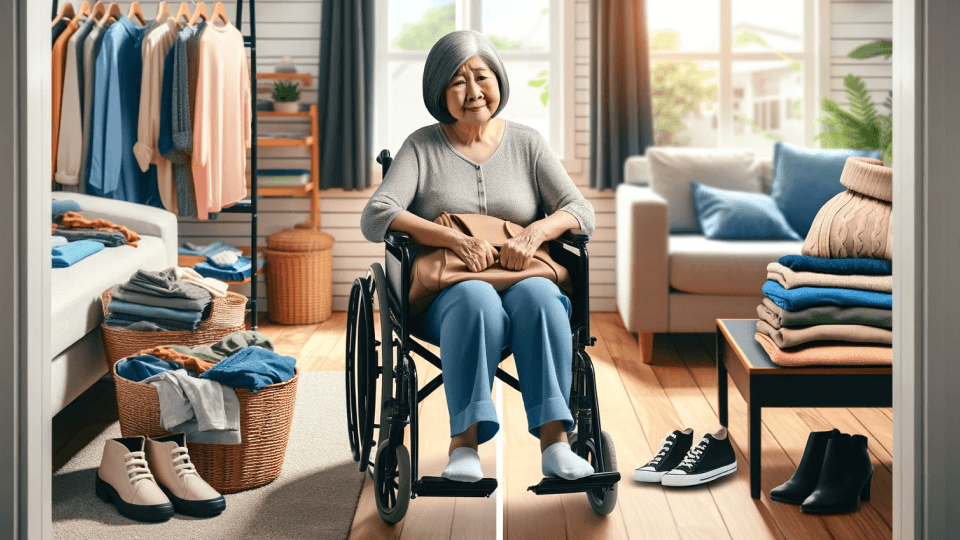Why Do Disabled People Put Up with the Inconvenience of Conventional Clothing When They Can Easily Switch to Adaptive Clothing?
When it comes to fashion, most of us don’t give a second thought to slipping on a pair of jeans or buttoning up a shirt.
But for millions of disabled individuals, this seemingly simple task can be a daily struggle. Enter adaptive clothing – a game changer in the world of fashion designed specifically to meet the needs of those with physical limitations.
So, why do many disabled people continue to wear conventional clothing when adaptive options are available? Let’s dive into the reasons.
Why Do Disabled People Put Up with the Inconvenience of Conventional Clothing?
Lack of Awareness
One of the biggest reasons is simply a lack of awareness. Adaptive clothing is still a relatively new concept, and not everyone knows about it. Many people, including those who could benefit from it, are unaware that such options exist. Traditional, conventional clothing has dominated the market for so long that adaptive alternatives often get overshadowed.
Limited Availability
While adaptive clothing is becoming more popular, it’s still not as widely available as conventional clothing. Mainstream stores might not carry a broad selection of adaptive wear, making it harder for people to find and try these options. Plus, online shopping, although convenient, doesn’t offer the tactile experience of touching and trying on clothes that many people prefer.
Fashion and Personal Style
Everyone wants to look good and express their personal style, and adaptive clothing can sometimes lag behind in the latest trends. For some, the limited designs and styles in adaptive wear just don’t match their fashion sense. People might stick to conventional clothing because it offers more variety, allowing them to dress in a way that reflects their personality.
Cost Concerns
Adaptive clothing can often be more expensive than regular clothing due to the specialized design and production processes involved. For individuals on a fixed income or with high medical expenses, the cost can be a significant barrier. Even when people are aware of adaptive clothing, they might choose to stick with conventional options because they’re more budget-friendly.
Stigma and Social Perception
Unfortunately, there’s still a stigma attached to disability in many societies. Wearing adaptive clothing can sometimes feel like another marker of difference, drawing unwanted attention or reinforcing stereotypes. Some disabled people might choose conventional clothing to blend in and avoid being singled out.
Tradition and Habit
Old habits die hard. Many people have been wearing conventional clothing their entire lives and might not see a compelling reason to switch. The familiarity and routine of dressing in a certain way can be comforting, and the idea of changing to adaptive clothing might seem unnecessary or even daunting.
Personal Independence
For some, the struggle with conventional clothing is a matter of pride and independence. Overcoming the challenges of dressing can be a form of personal triumph, and adaptive clothing might feel like giving up or admitting defeat. People might prefer to maintain their current routine to preserve their sense of autonomy.
While adaptive clothing offers a fantastic solution for many, the switch isn’t always straightforward. A combination of factors – from lack of awareness and limited availability to personal style and social perceptions – play into why many disabled individuals continue to use conventional clothing. Increasing awareness, improving accessibility, and expanding fashion choices in adaptive wear can help bridge this gap, making it easier for everyone to dress with dignity, comfort, and style.
But you don’t have to! 😊
Just add in your email address below to subscribe to our newsletter or drop us a note to speak with us on how we can help customise your clothing for a fraction of the cost. We also can come up with a payment plan, of three to four payments (subject to a minimum purchase), to help you if necessary. Best part, no one will even guess you are even wearing adaptive fashion!
Sign Up

